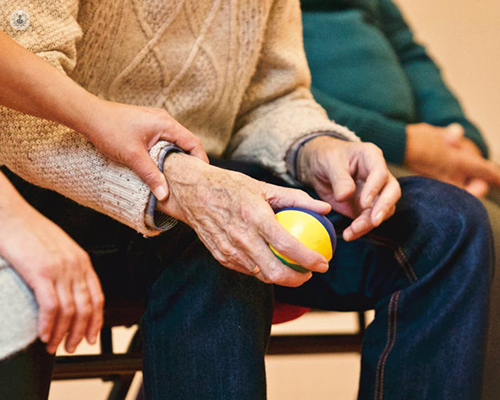How does basal thumb arthritis affect lifestyle?
Written by:Top Doctors had the chance recently to speak with leading hand and wrist surgeon, Mr Stephen Lipscombe, who, here in this article below, tells us all we should know about basal thumb arthritis.

What is basal thumb arthritis?
The thumb base near the wrist provides a tremendous range of movement and over 50 per cent of the function of the hand. Unfortunately, degeneration of the smooth articular surface can occur, producing arthritis. This is commonly due to gradual stretching of the stabilising ligaments around the joint.
What are the typical signs and symptoms of this condition?
Painful thumb base arthritis causing swelling, pain and stiffness, which can limit hand function.
How does basal thumb arthritis affect the patient’s lifestyle?
Thumb pinch becomes painful with daily tasks such as using door handles, squeezing toothpaste, and preparing vegetables. Pain can then become troublesome even at night.
When is base thumb replacement surgery recommended, and what are the potential risks and benefits of this procedure?
Basal thumb arthritis can be managed with simple painkillers and the use of supportive splints. If this fails, image-guided injections can provide temporary relief from symptoms.
With persistent, troublesome pain, surgery can be useful. Traditionally, this has involved removing a bone at the thumb base. Whilst effective for pain relief, recovery is slow, pinch grip weak, and in some cases, the thumb can shorten.
Base of thumb replacement is a newer technique which preserves most of the bone around the joint, replacing it with a small ball and socket joint. This is proving to be very effective when it comes to relieving pain quickly whilst maintaining normal thumb posture and pinch strength.
As with any surgical procedure, there are potential risks. For a small base of thumb replacement, general risks can include infection, dislocation, or fracture of the implants. Such implants currently would be expected to last for up to at least 15 years.
To book an appointment with Mr Stephen Lipscombe, simply head on over to his Top Doctors profile today.


